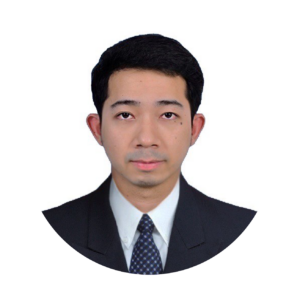If you cannot access ON24, view using this link.
Lung stereotactic body radiotherapy (SBRT) is an advanced radiation therapy technique that delivers highly precise and potent doses of radiation in a limited number of treatments. It is widely recognized as one of the options for early-stage in patients who are inoperable or prefer non-surgical options. Additionally, SBRT plays a critical role in managing oligometastatic disease in the lung, providing excellent local control with minimal toxicity. However, respiratory motion during treatment remains a significant challenge in targeting lung tumors accurately.
The Synchrony® System, integrated with the Radixact® platform, addresses this challenge by combining real-time motion tracking with dynamic adaptive radiation delivery. This system enables precise targeting of tumors in patients with both early-stage lung cancer and oligometastatic disease, minimizing radiation exposure to healthy tissue. In this presentation, we share the workflow, techniques, and practical implementation of the Radixact System with Synchrony at Chiang Mai University Hospital, focusing exclusively on its use in lung SBRT.

Piyapasara Toapichattrakul, M.D., Division of Radiation Oncology, Faculty of Medicine, Chiang Mai University Hospital, Chiang Mai, Thailand
Dr. Piyapasara Toapichattrakul is a radiation oncologist currently pursuing a Ph.D. in Clinical Epidemiology and Clinical Statistics at Chiang Mai University. She holds multiple diplomas in Clinical Statistics and Epidemiology, as well as a Thai Board certification in Radiation Oncology. Her medical education includes a Doctor of Medicine degree from the same institution. Dr. Toapichattrakul is licensed by the Medical Council of Thailand and has a keen interest in treating thoracic and gastrointestinal malignancies, as well as in oligometastasis and stereotactic body radiotherapy. Her academic and clinical training positions him as a knowledgeable professional in the field of radiation oncology.

Anupong Kongsa, MSc., Medical Physicist, Division of Radiation Oncology, Faculty of Medicine, Chiang Mai University Hospital, Chiang Mai, Thailand
Anupong Kongsa is a skilled medical physicist with a strong radiological technology and medical physics background. He holds a Bachelor of Science in Radiological Technology from Naresuan University and a Master of Science in Medical Physics from Chiang Mai University. Anupong has extensive professional experience, starting as a radiological technologist in various hospitals and currently serving as a medical physicist at Chiang Mai University. His expertise includes radiation treatment planning for complex cases such as craniospinal irradiation and real-time tumor tracking. Anupong is actively involved in training and speaking engagements, sharing his knowledge of advanced radiation therapy techniques. He has contributed to several publications in reputable journals and has received recognition for his work, including a second-place award in an international competition for radiotherapy students.

Warit Thongsuk, MSc., Medical Physicist, Division of Radiation Oncology, Faculty of Medicine, Chiang Mai University Hospital, Chiang Mai, Thailand
Mr. Warit Thongsuk is a medical physicist with a Bachelor of Science in Radiologic Technology and a Master of Science in Medical Physics from Chiang Mai University. He began his career as a radiologic technologist at Bumrungrad International Hospital before transitioning to his current role at the Division of Therapeutic Radiology and Oncology at Chiang Mai University. Warit has contributed to the field through publications focused on dose accumulation methods in radiotherapy, specifically for prostate and nasopharyngeal cancers. His work emphasizes the application of advanced imaging techniques in cancer treatment, showcasing his expertise and commitment to improving patient care in oncology.

Moderator: Vincenzo Iorio, M.D., Technical Director, Emicenter, Casavatore, Italy
Dr. Iorio is the Technical Director of the Radiotherapy Unit at the Radiology Prof. Vincenzo Muto-Emicenter in Casavatore. He is responsible for defining the treatment volumes for radiotherapy and developing treatment plans. His expertise includes executing and evaluating 3D treatment plans, as well as advanced techniques such as IMRT, VMAT, TomoTherapy, SBRT and SRS. Additionally, he is in charge of identifying and managing acute toxicities through clinical assessments during radiotherapy. In this role, he also conducts initial patient consultations, gaining valuable experience in the indication and prescription of radiation treatments, including the determination of volumes and doses, as well as overseeing instrumental clinical follow-up.

